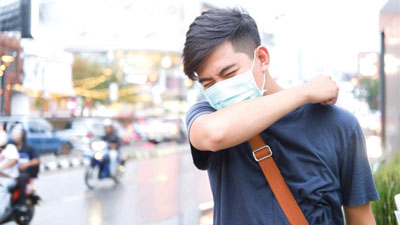RESEARCHERS say people with allergies and type 2 asthma may have a lower risk of developing COVID-19.
They say the resistance may be due to the fact that allergic inflammation in the airways may suppress the effectiveness of a receptor used by SARS-CoV-2.
Experts say people with allergies and asthma should still get vaccinated, as well as practice safety measures such as mask wearing and physical distancing.
Could people with certain kinds of allergies and asthma be more resistant to COVID-19? A study from the Queen Mary University in London looking at COVID-19 impacts across society hints at the possibility.
Researchers used monthly questionnaires with more than 15,000 study participants to look at all kinds of possible COVID-19 health interactions such as sex, age, comorbidities, workplaces, and lifestyle habits.
While the study was not created to look specifically at allergies and asthma, researchers said the data around those conditions jumped out at them.
Adrian Martineau, PhD, a lead study author and a professor of respiratory infection at Queen Mary University of London, told Healthline he believes the data is good news.
The research indicated there was a 38 percent reduction in COVID-19 risk for people with asthma; a 23 percent decrease for people with allergies such as eczema, hay fever, or rhinitis; and a 53 percent decrease for people taking immunosuppressants.
“At the start of the pandemic, there was a concern that people with airway disease such as asthma and COPD might be at heightened risk of getting severe COVID-19 — since respiratory viruses in general are known to be the major precipitant of acute exacerbations or attacks characterized by worsening of symptoms,” Martineau said.
Since then, he said, chronic obstructive pulmonary disease (COPD) has remained a risk factor for COVID-19 severity, but allergic, or type 2, asthma is not associated with more severe disease.
A number of studies have shown that allergic inflammation in the airway is associated with decreased expression of ACE2, the receptor for SARS-CoV-2, Martineau explained.










